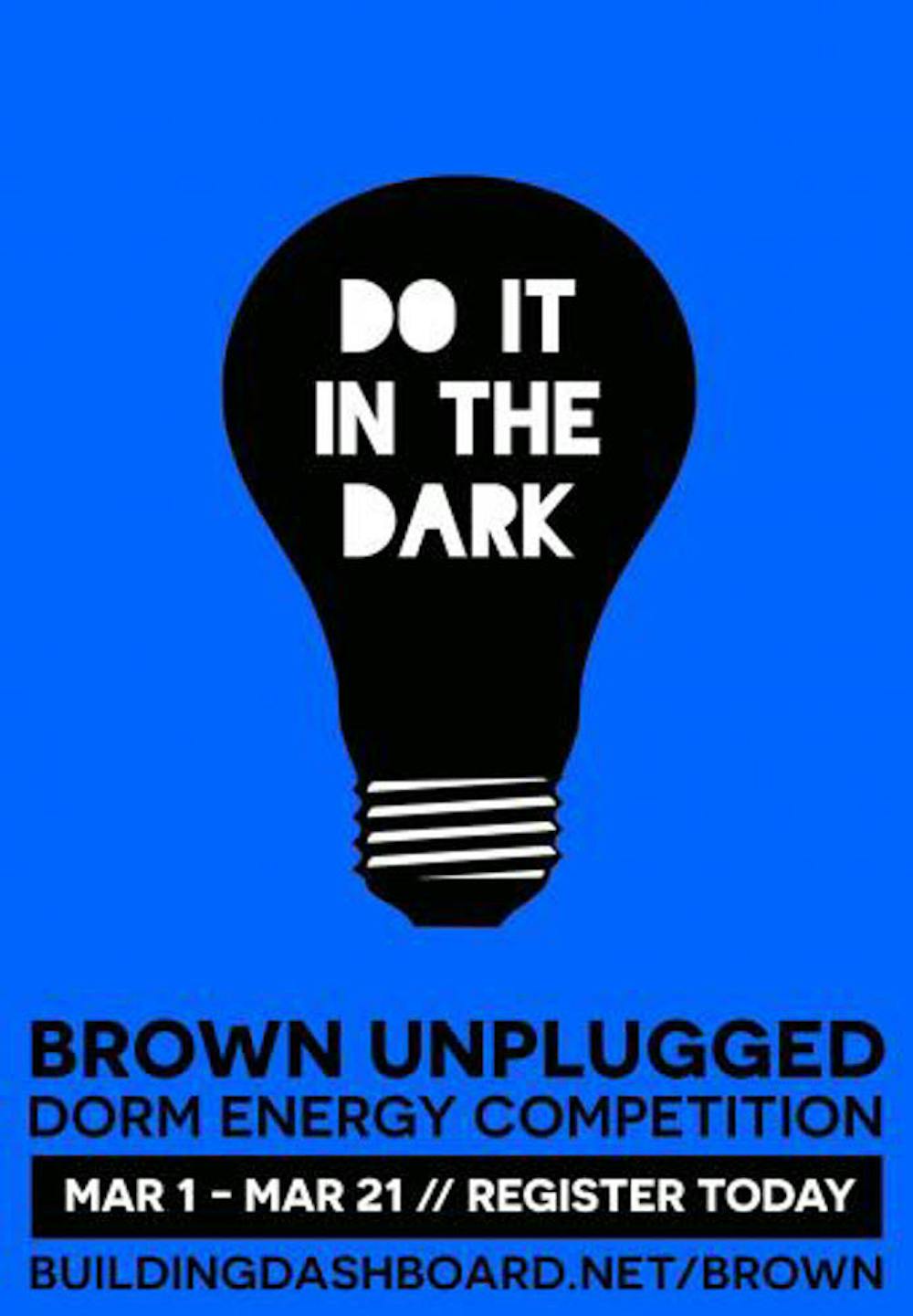Brown Unplugged: Do It in the Dark, an annual competition among university residence halls to save energy, finished its sixth run Monday. The competition ran from March 1 to March 21 and saw 964 students register to compete.
By the end of the competition, students saved over 11,215 kilowatt-hours and $1,736 of electricity and stopped 10,215 pounds of carbon dioxide from entering the atmosphere, wrote Dorinda Fong ’18, president of Brown Unplugged, and Emma Illick-Frank ’18, faculty and staff coordinator for Brown Unplugged in an email to The Herald.
Hope College saved the most energy, reducing its energy consumption by 12.8 percent, according to the competition’s website. Graduate Center came in second, and Barbour and Barbour Hall Apartments came in third, reducing energy consumption by 10.6 and 10.2 percent, respectively. Only three residence halls saw an increase in consumption during the competition: Archibald-Bronson Hall, Vartan Gregorian A & B and Andrews Hall. Andrews Hall’s energy consumption jumped over 5 percent, according to the Unplugged website.
Yasmin Toney ’19, a co-captain for Emery-Woolley Hall, wrote that many of her hallmates were open to receiving energy conservation tips. Simple things like lowering the temperature on thermostats, doing laundry more efficiently and unplugging chargers when they’re not in use helped Emery-Woolley residents save energy, Toney wrote in an email to The Herald.
Each residence hall’s energy consumption was measured before the competition began, Fong and Illick-Frank wrote. This metric was then used as a baseline to gauge how much energy was saved during the competition.
Because the amount of energy saved was measured by percentage rather than in absolute terms, factors like dorm size, efficiency of heating systems, number of kitchens, age of buildings and number of residents had a minimal effect on the competition, Fong and Illick-Frank wrote. Rather, the winners of the competition will be “the people in a dorm who collectively changed their energy-saving habits the most,” they added.
Still, the University saved less energy this year than last year. During the 2015 competition, the University saved 16,469 kilowatt-hours, wrote Fong and Illick-Frank. One possible reason for this change was less attention to first-year dorms, even though “it seems that freshmen are actually most receptive to this type of energy-saving initiative,” wrote Fong and Illick-Frank.
But there is a silver lining. The competition’s sole purpose isn’t just to reduce energy consumption. “The vision of the competition is geared around awareness,” said Christopher Powell, assistant vice president of Sustainable Energy and Environment. The purpose of the competition is to inform students about their energy usage so they adopt sustainable energy practices both during and after their time on campus.
Fong and Illick-Frank hope that, through energy-saving initiatives such as Brown Unplugged, students “will begin to see pervasive change of energy usage in dorms and other University buildings,” they wrote.





